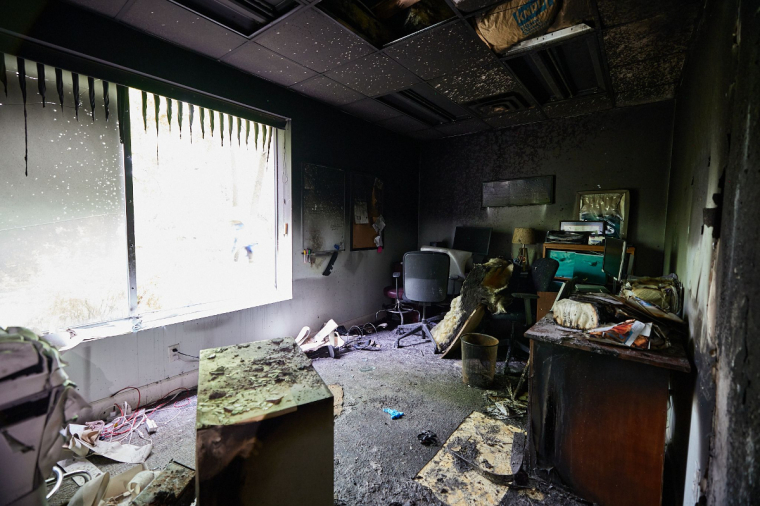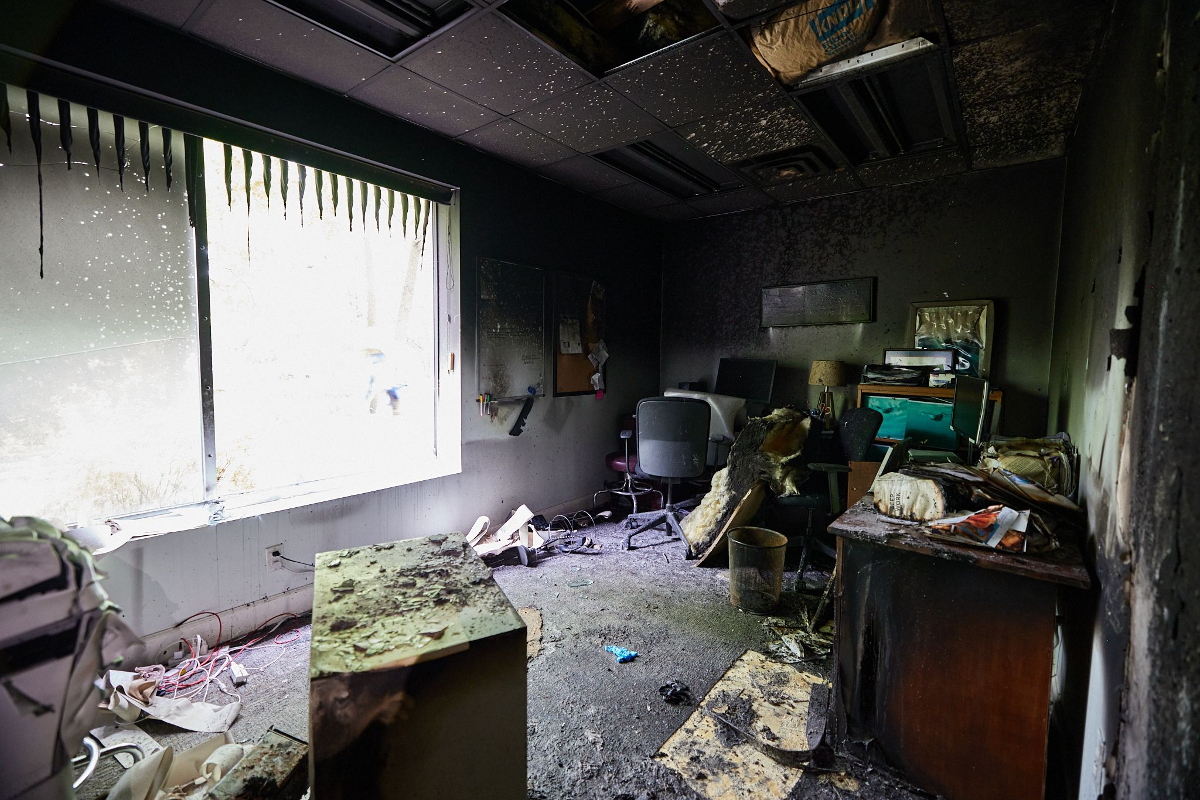
More than a dozen Democratic attorneys general have signed onto a letter condemning pro-life pregnancy centers for spreading what they say is “misinformation and harm.”
In a letter published Monday, 16 attorneys general expressed concern about the rise of “anti-abortion crisis pregnancy centers (CPCs)” they claim are “misleading consumers and delaying access to critical, time-sensitive reproductive healthcare.”
Led by California Attorney General Rob Bonta, the attorneys general of Connecticut, Delaware, the District of Columbia, Hawaii, Maine, Massachusetts, Michigan, Minnesota, New Jersey, New Mexico, New York, Nevada, Oregon, Vermont and Washington also signed on to the letter.
The signatories signaled their support for the business review website “Yelp’s efforts to ensure that customers receive clear information about the limitations of the services and staff available at CPCs.” The letter comes as Texas Attorney General Ken Paxton is suing Yelp for “appending inaccurate and misleading language to listings on pregnancy resource centers appearing in the search results on Yelp’s app and website.”
The attorneys general insisted that “CPCs do not provide full-scope reproductive healthcare and often use deceptive tactics to lure in patients seeking reproductive healthcare,” adding, “these tactics can have dire health consequences and rob patients of their healthcare choices.”
The letter cited studies from two pro-abortion advocacy organizations, The Alliance: State Advocates for Women’s Rights and Gender Equality and NARAL Pro-Choice America.
The letter highlights a statistic included in the study of crisis pregnancy centers in nine states conducted by The Alliance, asserting that “the majority did not offer medical services beyond urine pregnancy tests.”
“While 56% of CPCs offered ultrasounds, those ultrasounds were limited and undiagnostic, meaning the ultrasound only confirmed that a person was pregnant but did not provide any information about the medical condition of the fetus or the pregnant person,” they added. “The CPC-provided ultrasounds cannot ‘determine gestational age, study placenta or amniotic fluid, or detect fetal abnormality, ectopic pregnancy, or fetal distress.'”
According to the pro-life research organization Charlotte Lozier Institute, there are more than 2,700 pro-life pregnancy centers in all 50 states that served over 2 million men, women and youth in 2019.
The pro-life organization Human Coalition, which operates several crisis pregnancy centers across the U.S., responded to the attorneys general’s claims about the services provided at crisis pregnancy centers in a statement to The Christian Post.
“What ‘reports’ from abortion advocacy organizations won’t tell you is the myriad of testimonies from women who are grateful for their life-saving experiences with pregnancy centers,” the statement reads. “Many women leave these centers transformed and empowered.”
According to Human Coalition, “They certainly don’t get this experience at a Planned Parenthood, where they walk out of an abortion right back into the dire circumstances that pressured them to abort. Listen to the voices of these women.”
Condemning crisis pregnancy centers for declining to “even refer for abortion services,” an entire section of the letter maintains that “CPCs often use deceptive tactics to lure in patients seeking actual reproductive healthcare.”
This portion of the letter includes examples of what the attorneys general describe as the centers providing “inaccurate and deceptive information about reproductive health,” as outlined in a NARAL study.
One allegation listed by the attorneys general accuses crisis pregnancy centers of using “online strategies to target women, ensuring that when someone types ‘abortion clinic’ into a search engine (e.g. Google), they ‘get[] results for CPCs, which use false advertising tactics to lure women to their facilities instead of actual health clinics.'”
Additionally, the letter dismisses the notions that abortions can result in “grief and regret,” characterizing “post-abortion syndrome” and “post-abortion stress” as fictitious conditions.
The attorneys general complained that “CPCs purposely locate their centers’ near comprehensive health clinics or in medical buildings that give the impression that medically accurate services are available.” They said, “By locating near clinics that provide comprehensive information and services, CPCs purposefully try to confuse patients into mistakenly entering their deceitful clinics.'”
“CPCs notably often target vulnerable populations and communities facing barriers to reproductive healthcare access with their deception and misinformation, such as young people, people of color, and those for whom English is not their primary language. CPCs purposely advertise with billboards near high schools, colleges, and low-income neighborhoods to reach a target audience of low-income and vulnerable pregnant people,” they wrote.
Human Coalition pushed back on the letter’s assertions that crisis pregnancy centers “target” minority communities.
“These centers minister to many low-income communities because it’s precisely these women who need the most care and support at a critical time in their lives,” the Human Coalition statement reads. “For the record, Planned Parenthood intentionally sets up clinics in low-income communities for the same reason — except they profit greatly from abortion, so it’s actually Planned Parenthood that’s ‘targeting’ these low-income communities.”
As Brittany Smith of Save the Storks wrote in 2020, many misunderstand that there are two types of pro-life pregnancy clinics: “non-medical” and “medical.”
Non-medical pregnancy centers, she wrote, offer pregnancy tests, counseling, parenting classes and “practical instruction to parents.” Additionally, most centers offer supplies like diapers, baby clothing and formula at no cost to the mother or family.
Medical pregnancy resource centers offer many of the same things non-medical centers do but also employ registered nurses or ultrasound technicians trained to perform sonograms under the guidance of a licensed medical director.
According to the Charlotte Lozier Institute, support provided by crisis pregnancy centers in 2019 was valued at nearly $270 million at little to no cost to clients. The organization reports that about 75% of women at risk for abortion who view an ultrasound at a pregnancy center chose to continue their pregnancy.
The attorneys general characterize the “abortion pill reversal” often administered by pro-life pregnancy centers as “unproven and potentially risky,” adding “there is no credible science or evidence” that the reversals work and that they have saved “thousands of lives.”
They claimed that “the only scientifically rigorous study had to be halted almost immediately due to serious ‘safety concerns’ after 3 of the 12 study participants had to be transported by ambulance to the hospital after ‘severe vaginal bleeding’ occurred.”
Human Coalition rejects the letter’s assertion that not having an abortion can bring negative consequences for women.
“Of the women we see at Human Coalition, 76% would actually prefer to parent if their circumstances were different,” the statement explains. “They often experience economic or social hardships that pressure them to abort, but Human Coalition and pregnancy centers across the country offer them an off-ramp from their difficult situations by giving them support and material assistance, on their terms.”
“That’s what so many miss in today’s abortion discussion — many women actually don’t want abortion, they just think it’s their only option, and it’s a message they hear over and over again from the abortion industry. Human Coalition and pregnancy centers meet them where they are at and help them make an empowered decision from a place of stability.”
U.S. Sen. Elizabeth Warren, D-Mass., is among a group of lawmakers who introduced the Stop Anti-Abortion Disinformation Act, which would direct the Federal Trade Commission to prohibit “deceptive advertising” about the provision of abortion services and collect fines from violating organizations.
Jor-El Godsey, president of Heartbeat International, a worldwide network of more than 3,000 pro-life pregnancy centers that assist pregnant women by offering free services, told The Christian Post last year that the types of care centers provide differ, but most offer material services and connect women with community resources.
“It’s the local pregnancy centers that are really defining their own services,” he said.
“That’s one of the beauties of being local, the idea that the community knows best what the community needs,” he continued. “So we firmly believe that the local pregnancy centers are positioned very well to serve the very type of woman in their community who needs that help.”
Many pro-life pregnancy centers have suffered varying degrees of vandalism after least year’s leak of the U.S. Supreme Court’s draft decision in Dobbs v. Jackson Women’s Health Organization, determining that the U.S. Constitution does not contain a right to abortion.
CompassCare, a group of pro-life pregnancy centers in upstate New York, had its Buffalo-area office firebombed last year, while Wisconsin Family Action in Madison, Wisconsin, had a Molotov cocktail thrown through the window.
The vandalism continued after the Supreme Court handed down the official Dobbs decision last year and after the early-morning raid on the home of a pro-life activist.
Ryan Foley is a reporter for The Christian Post. He can be reached at: ryan.foley@christianpost.com




























![[Video] More – Aghogho » GospelHotspot](https://gospelhotspot.net/wp-content/uploads/2024/04/More-Aghogho.jpeg)
















